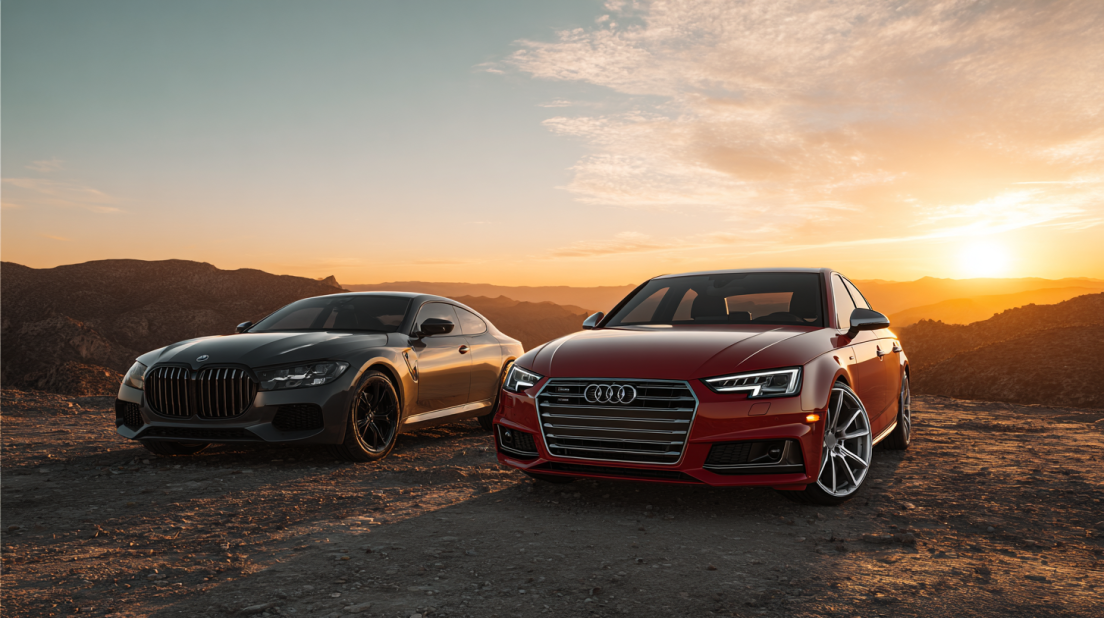Salvage Luxury Cars vs. Budget Cars: Which Has the Best ROI

When it comes to buying salvage vehicles, the question of return on investment (ROI) often drives the decision. Many buyers wonder whether salvage luxury cars or budget models deliver better value. Luxury sedans from leading luxury brands like Mercedes-Benz C Class, Land Rover, or Alfa Romeo tempt buyers with high quality and prestige. At the same time, budget-friendly vehicles promise affordable prices and easier repairs. The real choice depends on your goals, repair budget, and long-term outlook.
The Appeal of Salvage Luxury Cars
Salvage luxury cars for sale attract bidders who want upscale driving experiences without paying a steep price tag. Buying the cheapest luxury car at auction can mean gaining access to vehicles that would normally break the bank. Certified pre-owned options often carry high price points, but salvage title luxury cars can be found at a fraction of the cost.
Luxury salvage cars for sale include everything from accident-damaged luxury cars for sale to flood-damaged luxury cars for sale. These vehicles often land in auctions after insurance claims, making them accessible to buyers who want affordable luxury cars at lower costs. Luxury brands like Acura TLX, Alfa Romeo sedans, and the 2025 BMW series are all represented at luxury salvage car auctions. Many buyers search for luxury wrecked cars for sale or totaled luxury cars for sale because they know the vehicles retain value even after repair.
Budget Cars: A Simpler Path
On the other side, budget cars remain popular for their straightforward economics. While luxury repairable cars might cost less than new, they often require specialized labor and costly parts. Budget vehicles, on the other hand, feature lower acquisition costs and less complex repairs. A lowest-cost luxury car at auction might still exceed the price of a budget model ready to drive.
For people looking for fast resale or entry-level ownership, budget cars have an advantage. Repairs are easier, replacement parts are common, and buyers don’t need deep expertise. The ROI comes from lower investment and quicker turnaround, though profits might be smaller compared to a well-restored pre-owned luxury car.
Repair Costs and Risk
Luxury cars with cheap repairs are rare, but they do exist. Repairable luxury cars may need cosmetic work, while luxury damaged cars for sale could require advanced diagnostics. Wrecked luxury cars for sale, luxury salvage cars, and luxury used cars can be risky because small issues often lead to large repair bills. Still, the payoff can be worth it for enthusiasts who understand the mechanics.
By contrast, budget cars don’t usually carry the same risk. Even when buying salvage, you are less likely to face hidden electronic systems or rare parts. A damaged luxury car might need specialty paint or wheel drive system repairs that cost far more than a budget sedan’s components. Buyers need to weigh whether the potential ROI offsets these risks.
Market Demand and Resale
The best used luxury cars maintain a strong resale market. Buyers constantly look for used luxury cars for sale and pre-owned luxury cars with reasonable miles and solid repair histories. Luxury salvage car auctions cater to this demand. Salvage title luxury cars for sale, especially those from trusted luxury brands, can command impressive resale values once repaired.
Budget cars appeal to a different crowd. Their resale depends on affordable prices and reliability, not sporty performance or prestige. While profits may not be dramatic, turnover is quick. That means investors can flip more cars in the same time it takes to rebuild one luxury wrecked car.
Electric Luxury Cars: A Special Case
Electric luxury cars change the equation. Battery packs and high-tech systems raise the risk and cost of repairs. At the same time, demand for electric vehicles keeps growing. A salvage luxury car salvage yard might have wrecked luxury cars with electric drivetrains waiting for new owners. If the battery is intact, ROI can be excellent. But if it is compromised, repair costs skyrocket.
Where Auctions Make the Difference
Luxury car salvage auction platforms provide access to damaged luxury cars for sale, including sporty performance models and even the newest 2025 BMW or Acura TLX. Whether you’re hunting luxury repairable cars or simply browsing cars for sale, auctions create opportunities. Buyers can find luxury damaged cars for sale, affordable luxury cars, and even the occasional lowest-cost luxury car that only needs minor work.
Salvage title luxury cars appear at both budget and premium levels. At luxury car salvage yards, bidders often compare wrecked luxury cars with budget models side by side. The ROI depends on purchase price, model year, and the buyer’s ability to manage repairs. For some, that means tackling luxury sedans with long-term value. For others, it means chasing quick flips with cheap models.
Final Thoughts: Choosing the Best ROI
So, which path is better—salvage luxury cars or budget cars? The answer depends on your resources. If you can manage complex repairs and have access to parts, salvage luxury cars for sale can deliver high profits, especially with in-demand models from luxury brands. A single project restoring luxury damaged cars for sale could outpace several budget flips.
If your priority is low risk, budget cars remain the safer option. ROI might not be as impressive, but the process is simpler, and the capital needed is smaller. Both options exist at luxury salvage car auctions and general sales. Your choice comes down to strategy: either embrace the challenge of high-quality, high-reward projects or focus on steady gains with budget-friendly investments.
In either case, salvage buyers can find excellent opportunities. From affordable prices on wrecked luxury cars to steady demand for reliable budget models, auctions give investors the flexibility to pursue the ROI path that suits them best.
- What to Know Before Bidding on Vehicles in Pennsylvania - January 20, 2026
- Most Sought-After Used Car Brands in the USA in Recent Years - January 14, 2026
- Making Sense of Vehicle Bidding in North Carolina - January 14, 2026